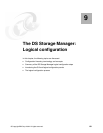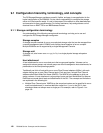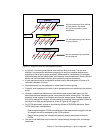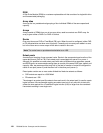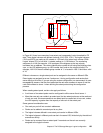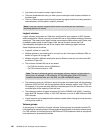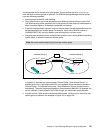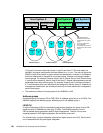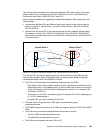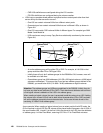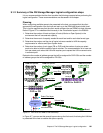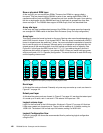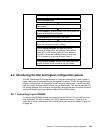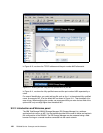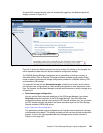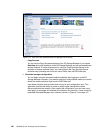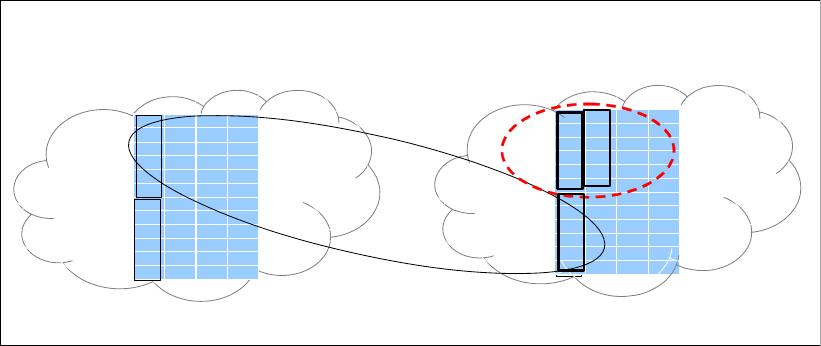
Chapter 9. The DS Storage Manager: Logical configuration 159
Figure 9-5 shows an example of the relationship between LSSs, extent pools, and volume
groups: Extent Pool 4, consisting of two LUNs, LUNs 0210 and 1401, and Extent Pool 5,
consisting of three LUNs, LUNs 0313, 0512, and 1515.
Here are some considerations regarding the relationship between LSSs, extent pools, and
volume groups:
Volumes from different LSSs and different extent pools can be in one volume group as
shown in Figure 9-5. Volume Group 1 consists of Extent Pool 4, LUN 0210 and Extent
Pool 5 LUN 0512.
Volumes from the same LSS or the same extent pool can be in different volume groups.
For example, in Figure 9-5, LUN 0512 in Extent Pool 5 and LUN 0313 in Extent Pool 5
both reside in the same extent pool, but LUN 0512 is in Volume Group 1 and LUN 0313 is
in Volume Group 2.
Figure 9-5 Example of relationship between LSS, extent pools and Volume Group
The LSS and LCU provide the logical grouping of volumes/LUNs for Copy Services and
various other purposes. Some of these purposes are explained here along with general
considerations about LSSs in the DS6000, as follows:
The LSS or LCU determines the addressing, address groups, and PAVs.
– Each logical volume has a 4 digit Hexadecimal 'xyzz' identification number built using
the following rules: x= the address group, xy=LSS number itself, and zz=the volume ID
(volid). For example, LUN 1401 has an address group number of 1, is located in LSS
14 and has a volid of 01.
– There are up to 16 LSSs in an address group. For example, 00 to 0F for address group
0, 10-1F for address group 1.
– Any given PAV can only be used within one LCU.
LSSs are used for Copy Services, PPRC paths, and consistency group
properties/time-outs.
The DS6000 supports a maximum of 32 LSSs and supports intermix of CKD LSSs and FB
LSSs.
The LSSs have a pre-determined association with server0 or server1.
– The even LSSs are associated with server0.
– The odd LSSs are associated with server1.
The LSSs are configured to be either CKD or FB.
0
2
1
0
1
4
0
1
Extent Pool 4 Extent Pool 5
Volume Group 1
Volume Group 2
0
3
1
3
0
5
1
2
1
5
1
5



